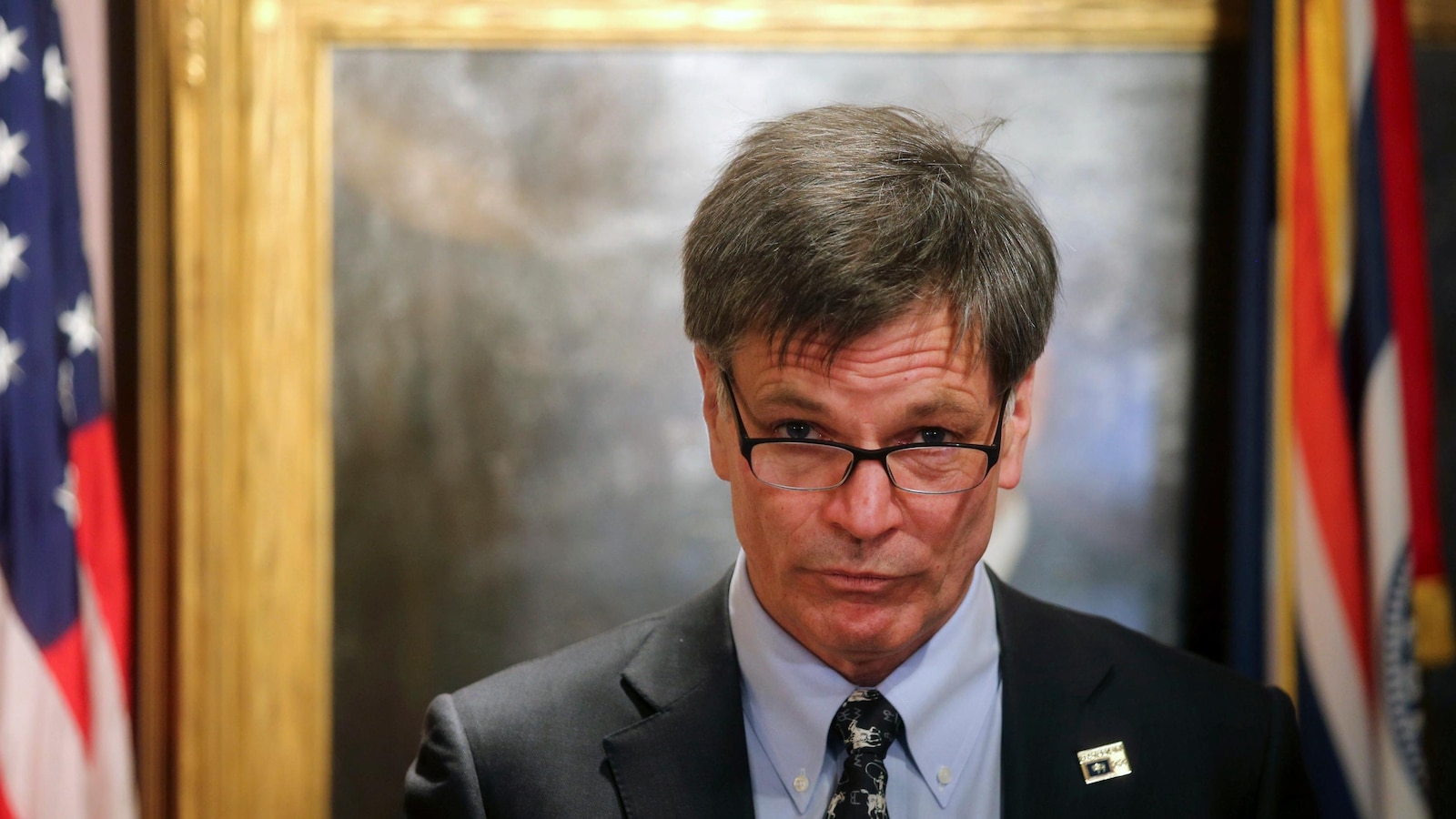
CHEYENNE, Wyo. — Wyoming Republican Gov. Mark Gordon has vetoed a bill that would have allowed people to carry concealed guns in public schools and government meetings.
In his veto letter Friday night, Gordon said he had concerns the bill would exceed the separation of powers provision in the state constitution since any policy, further regulation or clarification of the law could only be implemented by the Legislature.
It would have required each state facility, including the University of Wyoming, the Wyoming State Hospital and the Wyoming Boys’ School, to seek legislative approval to restrict carrying firearms.
The bill “erodes historic local control norms by giving sole authority to the Legislature to micromanage a constitutionally protected right,” Gordon wrote. “Any further clarification of the law, if this bill were enacted, would augment the Legislature’s reach into local firearms regulation.”
Under the bill, open carry of firearms would still have been prohibited in schools and government meetings, and K-12 students would not have been allowed to have guns at school. Guns would still have been banned in jails, courts, police stations and hospitals, and on private property if that was the owner’s wish.
Concealed firearms would have been allowed with a permit in public schools and at the University of Wyoming and community colleges in areas not serving alcohol. They also would have been allowed without a permit in meetings, including those of the Legislature.
Supporters said continuing to not allow guns in schools and meetings infringes on their Second Amendment rights.
A handful of Wyoming districts have let school officials carry guns in schools since the state began allowing it in 2017. Other states enabling permit holders to have concealed guns in schools include Alabama, Idaho, Indiana, Missouri, Oklahoma, Oregon and Utah, according to the National Conference of State Legislatures.
Wyoming is among the gun-friendliest states, and the bill passed the state Senate 22-8 after supporters dismissed fears about allowing guns where they’re currently banned.
One of Wyoming Senate’s two Democrats, Chris Rothfuss of Laramie, had argued against the bill, saying he had not heard from teachers or students on the issue. He appealed to the Republican principle that government closest to the people governs best. The chamber’s other Democrat, Mike Gierau of Jackson, also voted against the bill after initially voting for it.
Gordon signed four other bills concerning gun rights. One prohibits credit card processors from using firearms or firearm-related merchant category codes and prevents the government or private entities from keeping any registry of firearms through use of a firearms code.
The other bills prohibit red flag gun laws from being enforced or implemented in Wyoming, amend regulations to have those who have had firearms rights restored eligible for a concealed carry permit, and create an account to reimburse school districts for costs related to possession of firearms on school properties by school employees.
Gordon also ordered state officials to consider allowing concealed carry in the Capitol and other state buildings.
The Governor of Wyoming, Mark Gordon, recently made headlines by vetoing a piece of legislation that would have allowed for concealed carry in public schools and meetings. The bill, known as House Bill 114, was passed by the state legislature earlier this year but was ultimately rejected by Governor Gordon.
The legislation would have permitted individuals with a valid concealed carry permit to bring their firearms into public schools and meetings, including those held by local government bodies. Proponents of the bill argued that it would enhance safety and security in these settings by allowing law-abiding citizens to defend themselves and others in the event of a threat.
However, Governor Gordon cited concerns about the potential risks and unintended consequences of allowing guns in schools and public meetings. In a statement explaining his decision to veto the bill, he emphasized the importance of ensuring a safe and secure environment for all Wyoming residents, particularly children and vulnerable populations.
The Governor’s veto has sparked a heated debate among lawmakers, gun rights advocates, and community members. Some have praised his decision as a necessary step to protect public safety, while others have criticized it as an infringement on Second Amendment rights.
In response to the veto, supporters of the legislation have vowed to continue pushing for similar measures in the future. They argue that allowing concealed carry in schools and meetings is a common-sense approach to preventing violence and deterring potential threats.
Ultimately, the debate over concealed carry in public schools and meetings is likely to continue in Wyoming and across the country. As policymakers grapple with how best to balance public safety and individual rights, Governor Gordon’s veto serves as a reminder of the complex and contentious nature of gun policy in America.


